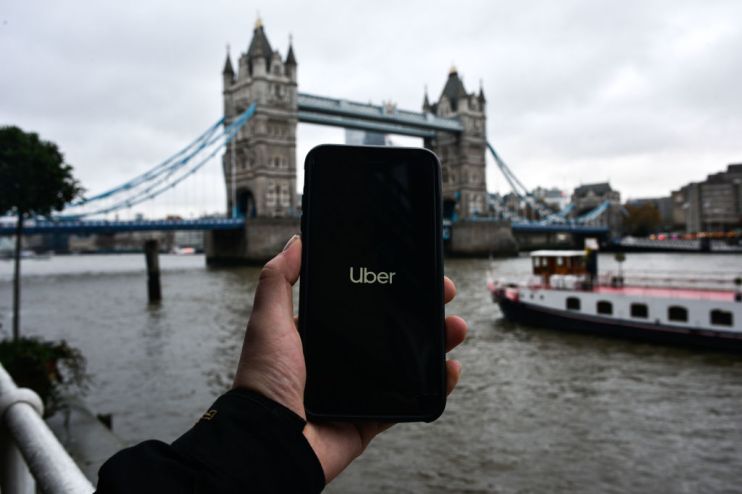Supreme Court set for long-awaited Uber employment rights judgement

On Friday the Supreme Court will hand down its judgement as to whether Uber has been successful in its appeal against a ruling recognising its drivers as workers, not independent contractors.
The long-running dispute, which has been bouncing through the courts since back in 2016, could have sizeable implications for the future of the gig economy.
What’s at stake?
Back in 2016, two former Uber drivers brought a case against the transport tech giant to the employment tribunal seeking drivers to be designated as “workers”.
Uber drivers are currently treated as self-employed, meaning they are legally entitled only to minimal protections.
But under “worker” status – an employment status unique to the UK – drivers would be entitled to rights such as minimum wage, paid holidays, and rest breaks.
After success at the Employment Tribunal, the ruling was upheld by the Employment Appeal Tribunal in November 2017 and the Court of Appeal in December 2018.
However, the Court of Appeal decision did include a dissenting opinion from Lord Justice Underhill, which, says Joe Aiston, senior associate at law firm Taylor Wessing, offers Uber a “chink of light” ahead of Friday’s Supreme Court ruling.
Unlike the majority of the Court, Underhill did not dismiss the written terms of drivers contracts, which Uber says make it clear that drivers are independent contractors.
The arguments
There are likely to be two main issues at stake in the judgement, says Aiston.
The first is obvious: whether the Supreme Court will agree with lower bodies that drivers should be deemed workers.
But if they do, Aiston says, Uber will be looking closely at exactly when the court decrees Uber drivers should be recognised as workers.
He explains: “As things stand, the Court of Appeal has determined that whenever an Uber driver is in the relevant location, has the app on and is available to accept rides, they are a worker, and so all of that time should be factored in when considering wages and paid leave.”
But this clearly has some potentially unintended consequences, Aiston adds: “If you’re saying that whenever someone has the app on they should be considered a worker, it is possible that some drivers will sit with multiple similar apps on at once and therefore would be entitled to a minimum wage from all of these companies.”
Uber’s position on this is that if drivers are workers, then they should only be deemed workers when on a trip.
Before the Open: Get the jump on the markets with our early morning newsletter
Uber’s response
If, as many expect, the Supreme Court does not uphold the appeal, attention will then turn to how Uber will react.
Again, this could go into a number of different directions, says Aiston.
“The common sense outcome is that Uber will simply acknowledge that all of its UK drivers are workers and give them the rights that entails.
“But one option that might be open to Uber is to look to distinguish the ruling from what is happening now with their employment practices. We believe they have been changing their contractual terms and working arrangements with a view to reducing the argument that drivers should be classed as workers going forwards.”
If successful, that would mean that worker designation would apply to the 25 drivers concerned in the original case, and not simply all drivers.
On Monday Uber launched a white paper aimed at the European Commission arguing for minimum protections for its drivers even though they do not consider them to be employees.
The timing is interesting, says Aiston. “If they do decide that the judgement applies only to those 25 drivers and don’t acknowledge the rest as workers going forward, they may use the white paper as evidence that are lobbying and campaigning for some employment protections for their drivers.”
What happens next?
If the Supreme Court aligns with the lower courts and throws out the appeal, the most immediate consequence will be that around 1,000 similar claims concerning Uber which have been stayed while this judgement is given could then go forward to the courts.
In addition, the case will then return to the Employment Tribunal which will decide how much compensation drivers are entitled to.
But from a wider perspective, Aiston says the immediate impact on other gig economy firms will be less dramatic.
“It’s important to bear in mind how fact-specific this is. All gig economy firms will be looking closely at the reasons why the Supreme Court has come to its decision.
“But what this doesn’t mean, assuming the Supreme Court doesn’t uphold the appeal, is that all gig economy workers are workers as a matter of law. But it will set some precedent as to what the important tests are for these companies to bear in mind when assessing whether someone is or is not a worker.”